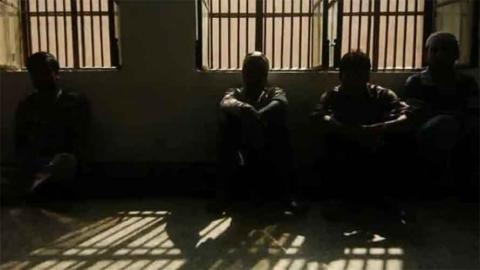Supreme Court of India, in its judgments on various aspects of prison administration, has laid down three binding broad principles for imprisonment and custody. First, a person in prison does not become a non-person. Second, a person in prison is entitled to all human rights within the limitations of imprisonment. Third, there is no justification for aggravating the suffering already inherent in the process of incarceration. Given these binding guiding principles, when we consider prevailing conditions in Indian jails, we find sub-human conditions accompanied by overcrowding, ill treatment of inmates, tortures, and massive corruptions in supply of food, health care and related complements. Several committees and commissions on jail reforms have not worked to improve living conditions in jails as centres of reforms. Even Central guidelines on model jail reforms have not worked because of failure of state governments and nexus between jail administration, police and judiciary. Often, it has been seen that prisoners freed from jails turn out to be hardened criminals.
According to the latest data of National Crime Records Bureau (NCRB) of 2021, Indian prison population has 77 per cent under trials, while only 27 per cent are convicts, with half of the under trials in prisons with more than two years. Out of a total of 5,54000 prisoners, 4,27000 are awaiting trials, of which 24,033 under trials are already in jail for three to five years. Occupancy rate for prisons is 130 per cent indicating overcrowdings. Seventy seven per cent under trial prisoners have been booked for petty crimes. They have either completed prison terms equivalent to the offences committed or nearing completion and some exceeded the terms of punishments for the targeted period of incarceration. A whopping 67 per cent of the inmates belong to OBCs, SCs and STs. Muslims constitute 18 per cent of prisoners forming the largest segments of religious minorities, much higher than their proportion of population. People of oppressed castes and Muslims together form 85 per cent of total prisoners. Total number of prisons in the country is 1,412 comprising 137 Central jails, 394 district jails, 732 sub-jails, 20 women jails, 20 borstal schools, 64 open jails, 42 special jails and three other jails.
The Prison Act, 1894 and prison manuals of the respective States govern prison administration. In the scheme of the Constitution of India, prison is state subject. However, the Central Government provides assistance to the States for improving security in prisons, for repair and renovation of old prisons, medical facilities, development of borstal schools, facilities to women offenders, vocational training, modernization of prisons, training of prison personnel and for creation of high security enclosures, thus supplementing the totality of state governments’ efforts.
Imprisonment in India is perceived an exercise of power enforced by political power that decides what constitutes a crime; the policy choices for ameliorating it and the consequent sweeping changes in sentencing patterns are all politically driven. With the growing inequalities and inequities in the society, rising restiveness of the people and the state repression of their movements, prisons and custodial institutions have become instruments of state to control the unruly classes, the oppressed sections and those who dare to speak for them. Such people are perceived as threats to status quo and the social order, which is manifestly unjust. Social control exercised through prisons and incarcerations is flagrant violations of the rule of law-based system of constitutional democratic governance. Situation could not have been more ominous than in the social, economic and political milieu in the country today.
It is a matter of grave concern that ever increasing overcrowding in Indian jails is caused by turning on its head the hitherto held and prevailing well settled doctrine of criminal jurisprudence ‘presumed innocent till proven guilty’ to altogether a bizarre new guiding principle ‘presumed guilty till proven innocent’ rendering the criminal justice process itself as punishment. This is because the state under the RSS Pariwar governance is becoming increasingly invested in criminalizing dissent and subjugating the masses (people), the sovereign masters of the government they have voted to power. Under the new normal, innocents are framed under non-bailable dreaded laws with judiciary mostly conniving, investigation commenced to fix the incarcerated under the make-believe trumped up charges to ensure their political adversaries and other targeted people or groups, a prolonged detention with their human rights violated with impunity; it is different matter that ultimately such implicated persons are acquitted with honour and freed, thus spoiling their individual honour and personal dignity with life long blemishes like social ostratisation and so on. This is a major challenge before the people to overturn the current façade of democracy (realistically, autocratic governance) to restore the rule of law based system of constitutional governance where people can enjoy Justice, Equality, Liberty and Fraternity as postulated by the Constitution of India!
